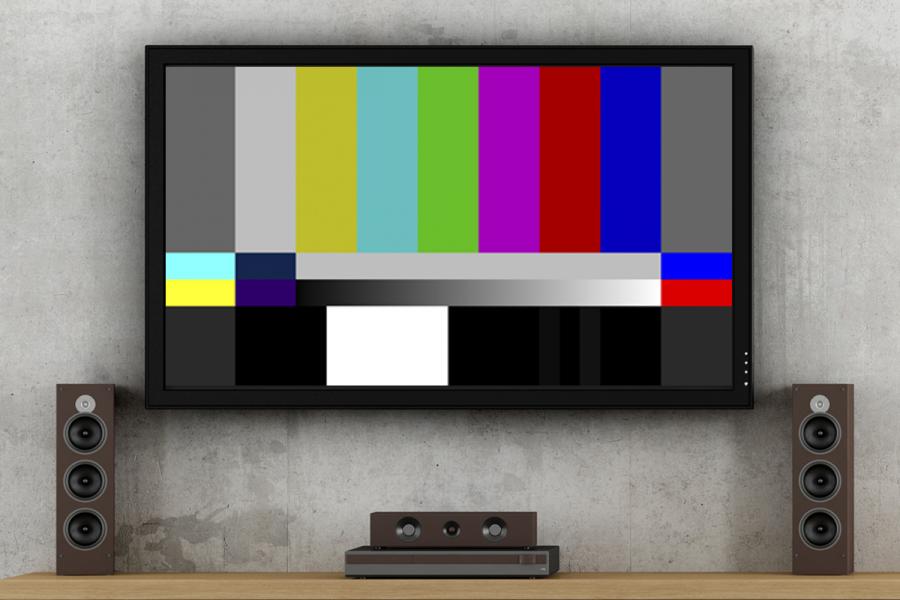
We Need a Clear Picture from the FCC on Its TV Set-Top Box Rule
Television quality has come a long way from the static-y black-and-white images of the 1950s to today’s high-definition streaming video. Unfortunately, the Federal Communications Commission, the agency charged with regulating cable and satellite providers, has not caught up with the times by often failing to provide a clear picture to the public and stakeholders about how rules are made.
A perfect example of FCC’s lack of transparency is the controversial proposed Set-Top Box Rule which could dramatically alter the way consumers receive their cable and satellite television. When it came time for the commission to finalize the proposal at last week’s FCC open meeting, Chairman Wheeler having failed to come up with the necessary three votes for adoption, pulled the proposal from the day’s agenda claiming the commission was “still working to resolve the remaining technical and legal issues.…”
Not only did Chairman Wheeler delay the final vote, he also informed the public that the rulemaking falls under the FCC’s ironically-named sunshine period prohibition until further notice, which prevents members of the public from engaging the commission on the proposal. According to Fred Campbell, former Chief of the FCC Wireless Telecommunications Bureau, unlike the current rulemaking, “[o]rdinarily the public could at least talk to commissioners about the most recent set-top box proposal after it was removed from the FCC’s meeting.”
Public participation is now necessary to the rulemaking process because the commission has yet to release a draft of the new proposed final rule. Apparently, the current version of the rule drastically differs from the one proposed earlier in February by potentially establishing a new licensing body to administer a standard industry license. During last month’s Senate Commerce FCC oversight hearing, Democratic Commissioner Jessica Rosenworcel questioned the legality of such an approach.
Under the current circumstances, three unelected FCC commissioners cannot meaningfully deliberate over a proposal which has undergone such significant changes and impacts a wide range of stakeholders without the public having an opportunity to see the new rule or provide input.
According to the D.C. Circuit of the United States Court of Appeals in Florida Power & Light Co. v. United States, the Administrative Procedure Act—the law guiding federal agencies—requires a federal agency “to provide notice of its proposed rulemaking adequate to afford ‘interested parties a reasonable opportunity to participate in the rulemaking process.’”
A bipartisan group of legislators, including Republican Senate Commerce Committee Chairman John Thune (R-S.D.) and 63 Democratic members of the House of Representatives, have called on the commission to put forward a Further Notice of Proposed Rulemaking which would provide transparency and enable the public to meaningfully comment on the proposal. Democratic Representative Tony Cárdenas of California appealed to the commission for a new comment period claiming:
It is difficult to analyze the full scope of the standard license and the FCC’s role in developing and enforcing this license without knowing the full details of the proposal. Commissioners should have the opportunity to place their vote knowing how the industry will be impacted and it is imperative that any new rules be adopted through a transparent and inclusive process.
The commission so far has not indicated any willingness to offer a new comment period.
Regardless of what side one stands on the set-top box proposal, everyone can surely agree that the FCC should provide transparency and meaningful public participation in its rulemaking. The U.S. Chamber has been at the forefront of promoting a more open and fair regulatory process by supporting the Regulatory Accountability Act—which was passed in the House this year—that provides the public with increased comment periods for major rulemakings. Through our regulatory reform campaign, we have been building support for the bipartisan principals of accountability, transparency, and participation.
The commission which seeks to “open the box” with regard to the cable industry should follow the advice coming from both sides of the political aisle by opening the current rulemaking to allow all impacted parties to view the new version of the proposed rule. The FCC should announce a new comment period before the rule becomes law.
The Weekly Download
Subscribe to receive a weekly roundup of the Chamber Technology Engagement Center (C_TEC) and relevant U.S. Chamber advocacy and events.
The Weekly Download will keep you updated on emerging tech issues including privacy, telecommunications, artificial intelligence, transportation, and government digital transformation.
